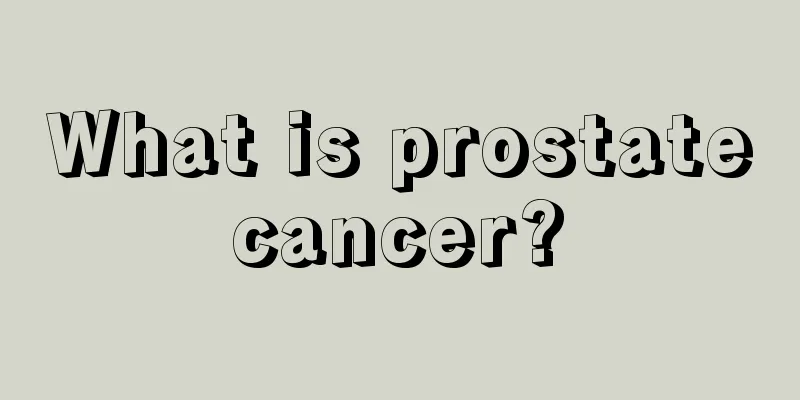What are the main factors that make pituitary tumors prone to recurrence?

|
There is a certain chance of recurrence after treatment of pituitary tumors, which makes patients suffer from pain. According to experts, its recurrence rate is about 10%, so daily care and health care after treatment is also very important, which is helpful to help avoid the recurrence of pituitary tumors. So, what are the main factors that make pituitary tumors prone to recurrence? 1. The degree of tumor resection and the amount of residual tumor are the main factors for recurrence. If the pituitary adenoma is completely removed during surgery, the possibility of recurrence is very small. If only a large part or a part of the tumor is removed, the possibility of recurrence is greater. If the tumor is invisible on postoperative imaging and the blood endocrine hormones are normal, there will be almost no recurrence. If the tumor is invasive and has no complete borders, the tumor surrounds the bilateral internal carotid arteries and invades multiple places in the bilateral cavernous sinuses, it is difficult to completely remove it by craniotomy or transsphenoidal surgery, and this type of tumor is often prone to recurrence. 2. Choice of surgical method. The surgical method should be comprehensively determined based on the volume of the tumor, the degree of invasion beyond the sellar region, and the surgeon's proficiency in various approaches. The appropriate surgical approach is extremely critical to the degree of tumor resection. Currently, the surgical approaches for pituitary adenomas are mainly transcranial and transsphenoidal. It is reported that the recurrence rate of pituitary tumors after transcranial surgery is 30%, and the recurrence rate of transsphenoidal approach is 7.75%-35%. 3. The characteristics of the tumor itself determine its recurrence. The size, texture and invasiveness of pituitary adenomas all reflect its recurrence. Pituitary adenomas are generally located in the anterior lobe. When they grow in the form of small nodules, it is the best time to perform a complete resection. If they are discovered late, when the pituitary adenoma is too large and grows above the sella turcica, the tumor will grow through the capsule or invade adjacent normal structures, making complete resection very difficult. Multiple pituitary adenomas and pituitary cell hyperplasia (nodular and diffuse hyperplasia) are also difficult to perform a complete resection. 4. Endocrine factors. About 30% of people are prone to pituitary tumors after bilateral adrenalectomy. In addition, patients with long-term primary hypothyroidism or hypogonadism often have pituitary adenomas. Therefore, the probability of recurrence in these types of pituitary tumor patients will increase further after surgery, which may be due to the long-term loss of feedback regulation. 5. Whether radiotherapy is performed after surgery for pituitary adenomas. Radiotherapy has a certain therapeutic effect on pituitary adenomas. However, the latest view is that radiotherapy can prolong the recurrence period and reduce the recurrence rate, but it cannot prevent recurrence. In view of some serious complications of postoperative radiotherapy, most scholars advocate emphasizing complete tumor resection and close postoperative follow-up for microadenomas, rather than conventional postoperative radiotherapy. For large, invasive pituitary adenomas and those with residual tumors after surgery, radiotherapy should be performed as soon as possible after surgery. Experts say that clinically, the recurrence of pituitary tumors after surgery is the result of the combined effects of multiple factors. The nature of the tumor should be fully evaluated before surgery, as much of the tumor should be removed as possible during surgery, recurrence should be predicted through pathological results after surgery, hormone monitoring and imaging review should be performed regularly, and combined with radiotherapy when necessary to prevent or reduce the recurrence of pituitary tumors after surgery. |
<<: What foods should be avoided for testicular cancer
>>: Self-examination for testicular cancer
Recommend
Atrioventricular block is important
Atrioventricular block is medically known as atri...
What are the causes of hamartoma
What are the causes of hamartoma? Modern people h...
What causes excessive sweating in the upper body?
There is actually not a single reason for sweatin...
This part of the body turns blue easily leading to paralysis
We often see bruises on the body, a blue area wit...
What happens if the eyes are hit
The human eye is the most beautiful organ of the ...
Taking berberine causes yellow urine
The color of urine can reflect the health status ...
Air conditioning may induce allergic rhinitis
The temperature is very high in summer. The hot a...
Ginger slices to remove facial scars
Everyone hopes that their face is smooth, shiny, ...
Can teeth cleaning remove tartar?
Teeth cleaning is a popular method of cleaning te...
Can't swallow food and have abdominal pain? Is it esophageal cancer?
Inability to swallow food and abdominal pain may ...
What does a mole on the corner of the mouth mean
Many people have a few black moles on their faces...
What are the fruits that soothe the liver and promote bile secretion?
In daily life, many fruits are rich in nutrients ...
Why do I feel weak all over and my limbs feel powerless?
People who often feel weak all over and have powe...
What are the dietary precautions for lung cancer patients
Dietary precautions for lung cancer patients duri...
The efficacy and function of mint
Many people in life prefer to drink mint tea, esp...









